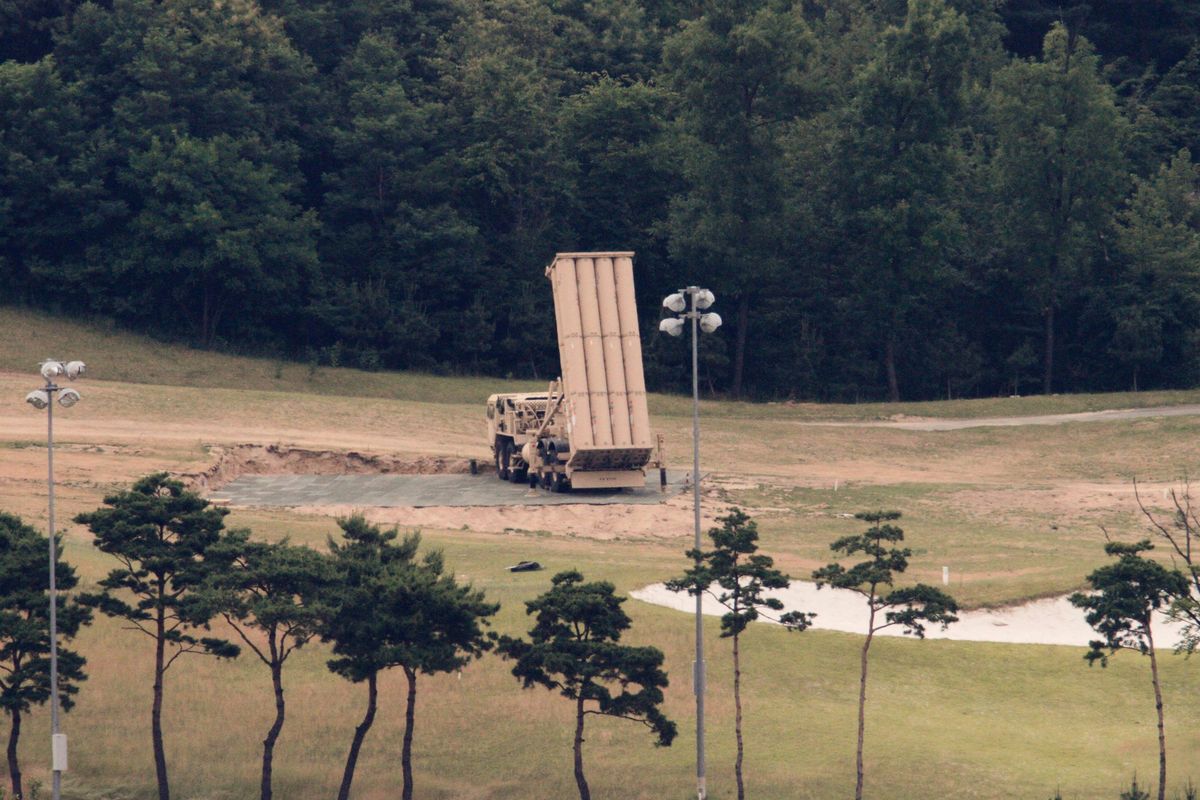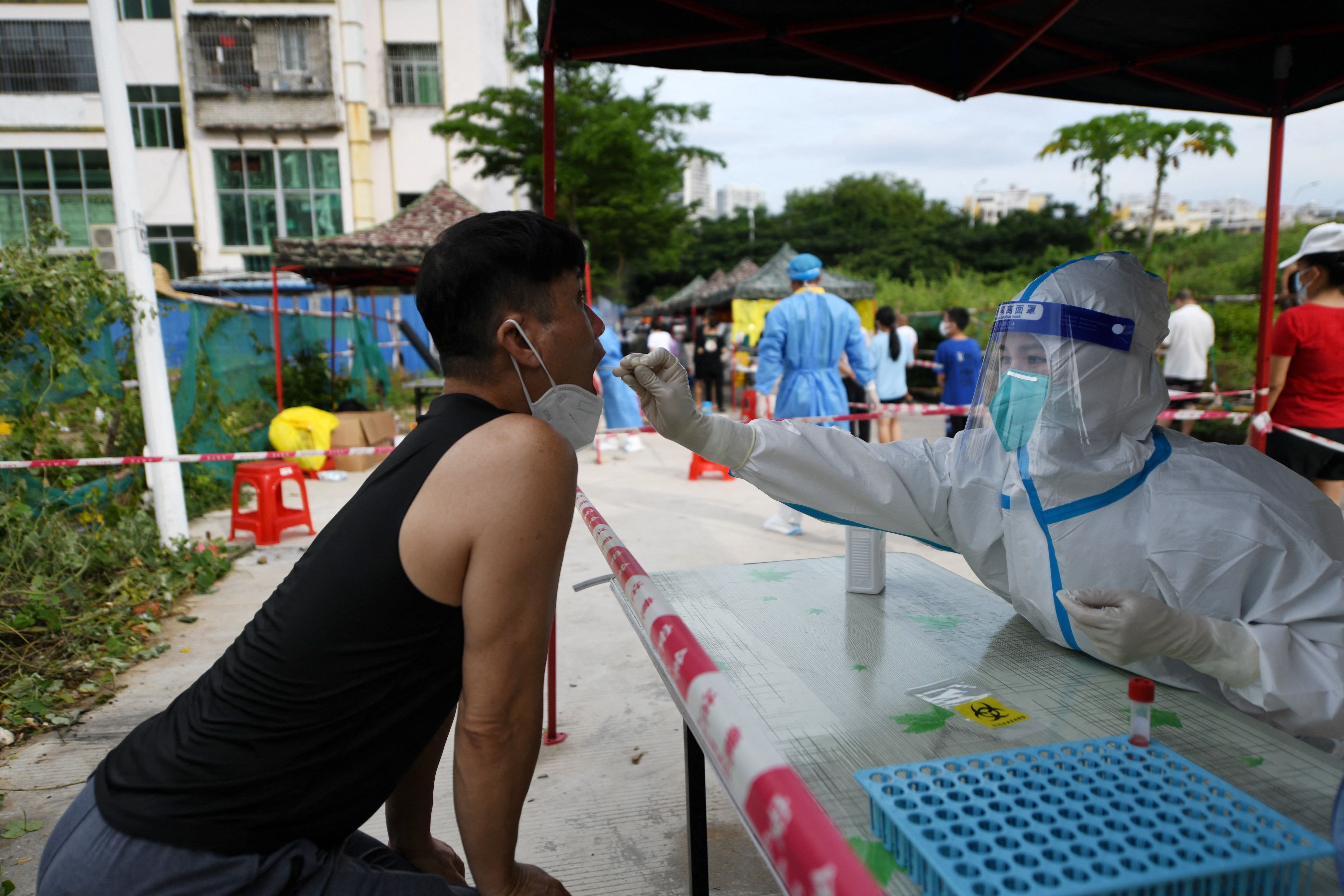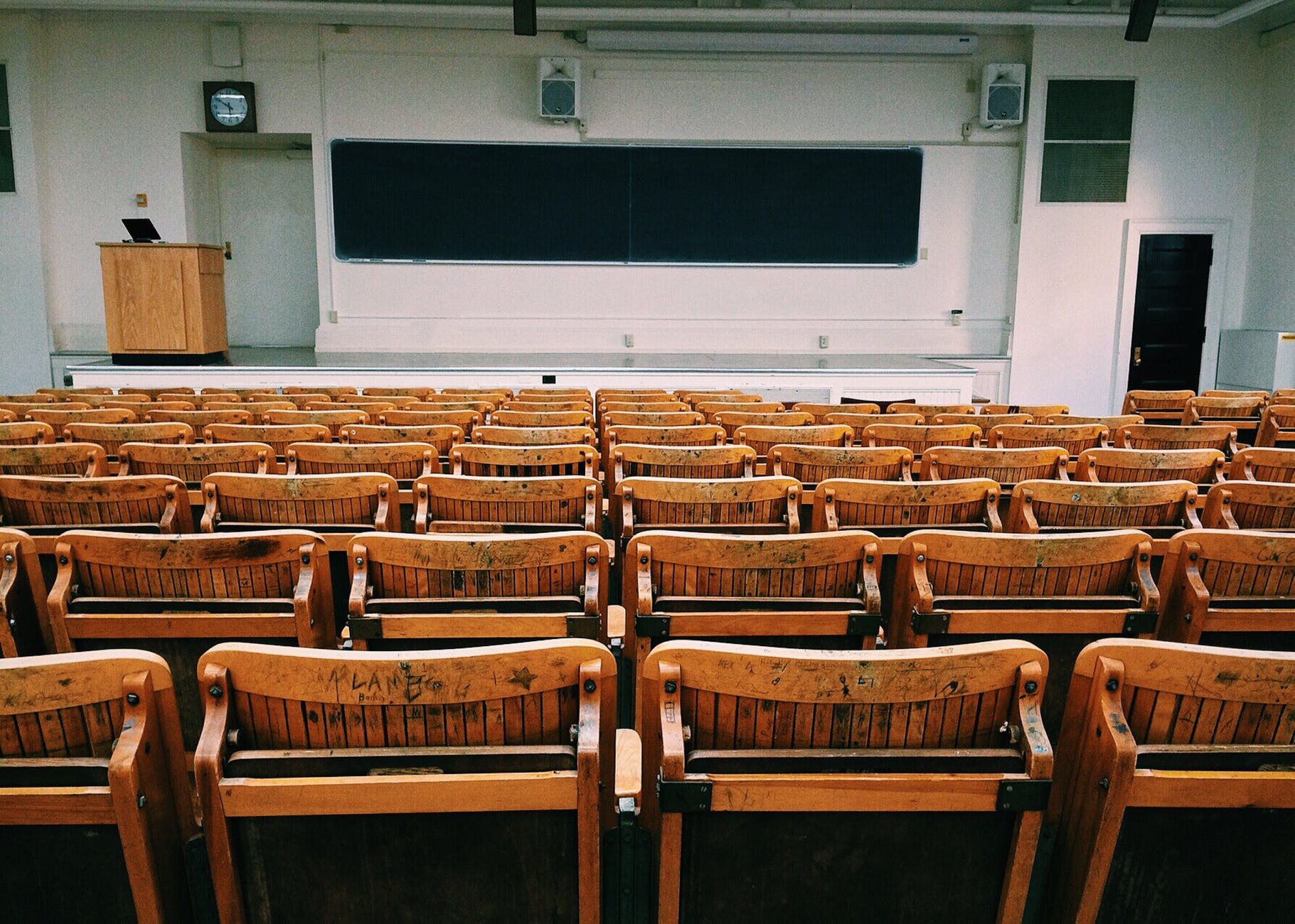From South Korea’s missile defense to Chinese students turning away from studying in the US – Here’s your August 12 news briefing

A few minutes every morning is all you need.
Stay up to date on the world's Headlines and Human Stories. It's fun, it's factual, it's fluff-free.
To start off, we’re looking into:
South Korea expands defense system
North Korea has been expanding its nuclear program for a while, and, to counter it, the US has been rolling out something called the Terminal High-Altitude Area Defense (THAAD) missile-defense system in South Korea. This system is meant to detect if a missile gets launched and shoots it down. But China isn’t a huge fan of it, saying that its really wide radar system could allow for spying on Chinese missile systems. So back in 2017, the South Korean President at the time, Moon Jae-in, said he was going to stop rolling out the THAAD system to get on China’s good side.
But then, earlier this year, Yoon Suk Yeol was elected president in South Korea, and he just announced that deploying the THAAD system wasn’t negotiable, despite China’s concerns. Yoon has been pushing to move South Korea closer to the US, so this is, in part, a move to also make that happen.
The Chinese really aren’t happy that this expansion is happening, saying that Korea should uphold agreements made with the former president even in the new Yoon administration.
New virus found in China

More than two years from the onset of the COVID pandemic, we’re already seeing another widespread health concern with monkeypox. And with its first case in 2018, a new virus was discovered in China. Langya henipavirus (LayV) has been known to cause fever, fatigue, cough, loss of appetite, body aches, nausea, vomiting and headaches. Some patients also had impaired liver function.
Last week, scientists’ findings on the virus were officially published. They detected it in two eastern Chinese provinces. Like with COVID, animals likely passed on the virus to humans via direct contact, most likely from shrews. The good news? It looks like LayV can’t be transmitted between people. So far, LayV has been found in 35 people, but none of them died from the virus. So, because of that, scientists aren’t ringing the alarm bell just yet. Because of such a small sample size, though, it’s also hard to come up with set conclusions.
Thinking too hard makes you tired
Feeling tired after using a lot of mental power isn’t exactly a new phenomenon, but now scientists can actually explain why it happens. One previous theory suggested fatigue was an illusion created by the brain to make us turn to a more enjoyable activity.
But yesterday, a new study by researchers from Pitié Salpêtrière University Hospital in Paris was published on the issue. Scientists used magnetic resonance spectroscopy (MRS) to monitor brain chemicals over six hours for two groups of people – one group was given complex mental tasks to complete, and the other had easier ones. As expected, the first group showed signs of exhaustion and fatigue, like pupil dilation, feelings of fatigue and loss of self-regulation.
But, the MRS also reported some new findings – higher levels of the amino acid glutamate in the prefrontal cortex of the first group. This chemical in the brain is quite normal, as it’s used by nerve cells to transmit signals to other cells. But, too much of it can also be toxic. The more you think and ponder the activities at hand, the more glutamate builds up in your brain. This glutamate build-up makes other prefrontal cortex activity, like planning how to respond to your boss or thinking strategically, more challenging to do and causes us to feel tired.
To end, we’ll look into:
The US isn’t the top choice for Chinese students anymore

Chinese nationals have previously made up as much as 35% of the international students studying in the US. For a while, the US was the top place that Chinese students wanted to go if they were looking to study abroad.
Now, though, those numbers are going down. So far, the number of student visas given to Chinese students in the US has dropped by about 50% in 2022 from pre-pandemic levels. Chinese students are looking elsewhere to go to university, with the UK, Singapore and Hong Kong being more coveted places to study, according to The Wall Street Journal.
Students have a variety of reasons they say they aren’t as interested in the US as before. Some cite anti-Asian rhetoric and violence in the US as a reason for their disinterest – in 2021, 16% of Asian American adults were the victims of a hate crime in the US, according to data from AAPI Data and Momentive. Other students have cited gun violence or the deteriorating relationship between the US and China. And still, others have said they just don’t feel wanted, pointing towards a 2020 order from Trump banning the US entry of graduate students from China who had any connection to the military.
Whatever the reason, the drop in Chinese international students in the US represents a massive economic hit. In the 2019-2020 academic year, Chinese students provided nearly US$16 billion worth of economic activity in the US, according to data collected by the Institute of International Education’s Open Doors.
The Biden administration has been trying to make the visa process more welcoming for these students, but it hasn’t reversed that Trump order just yet. So, for now, these Chinese students are just looking to other places in the world to study, and there’s no sign that the US might take back the mantle for the first pick.
In other news …
📉Stocks: MSCI’s global gauge of stocks dropped 0.04% to 2802.23.
📰Some specifics:
- S&P 500 is down 0.07% to 4,207.27.
- Nasdaq is down 0.58% to 12,779.91.
- Dow Jones Industrial Average is up by 0.08% to 33,336.67.
- The Hang Seng Index rose 2.40% to 20,082.43.
🧠Some quick factors to bear in mind:
- Yesterday’s excitement over the CPI report has cooled down a little. Now, investors have digested signs that the US Fed could slow interest rate hikes, but they can’t quite bank on that yet.
- But in terms of other positive economic news, more came today. The July producer price index was released, showing a surprise decline from June. PPI is a measure of the wholesale prices paid by companies. So if companies are paying less for their wholesale goods, this should translate into lower retail prices that we have to pay, helping cool future inflation.
- In the East, Hong Kong jumped to its highest level in three weeks as investors breathed a little easier with the lower-than-expected inflation rates in the US.
- China’s central bank announced plans to support economic growth and ensure stable prices in its quarterly monetary policy report, which could help ease high inflation rates that have climbed to the highest level since 2020.
👄Some comments and chatter:
“It was a better CPI print (Wednesday) than expected and a better PPI print (Thursday) morning than forecasted by analysts. So it fit that theme that peak inflation has occurred as energy continues to decline. But I would be concerned about a head fake," said George Catrambone, head of Americas Trading at DWS Group.
“We think central banks will soon ease, let things level off, maintain talk of more rates coming, but they won’t probably have to do as much heavy lifting as they wait for things to adjust," said Peter Esho, co-founder at Wealthi in Sydney.
🛢Oil: US crude is up 2.6% at US$94.34 per barrel, and Brent is at US$99.60, up 2.3% today.
👛Bitcoin: Bitcoin is up to US$24,118.60, a rise of 0.71%.
💔Dozens dead in Sierra Leone protests: At least 27 people died during protests in Freetown, Sierra Leone, including six police officers and 21 civilians. Protesters are frustrated by the government’s lack of action over rising prices for basic necessities.
🏘Basement flats banned in Seoul: After unprecedented flooding from downpours in Seoul, at least 11 people have drowned. Now, the government is phasing out semi-basement flats, which you may remember from the movie “Parasite," after two women and a teen were found dead in their basement home.
😷Has North Korea “defeated" COVID-19? After blaming South Korea for starting the COVID-19 outbreak, Kim Jong Un has declared victory over the virus. His sister, Kim Yo Jong, has also claimed that her brother had COVID symptoms earlier this year. North Korea is lifting its anti-epidemic measures but staying vigilant, according to a state news agency.
🔥After oil fire, Cuba faces instability: After lightning sparked a fire to Cuba’s main oil storage facility in Matanzas, a five-day massive blaze followed. Now, the fire has been defeated, but Cuba is facing anxiety as US oil sanctions affect its oil supply.
🌎Powerful US climate bill incoming: With deadly floods in South Korea and wildfires across Europe, it’s easy to feel just doom and gloom for our Earth. But in some more positive news, the US Senate just approved a bill for US$375 billion worth of funding over the next decade for clean energy endeavors. The House is expected to pass the bill, too, which could put the US back on the map of climate credibility.
🛵Wheeling around Pompeii: In a bizarre crime, an Australian tourist was caught riding a moped around the ancient site of Pompeii in Italy. He’d illegally entered through the service entrance, piggybacking onto cars which were legally entering. He claimed not to know the park was off-limits.
Written and put together by Jake Shropshire, Vanessa Wolosz, Christine Dulion and Krystal Lai




Comments ()